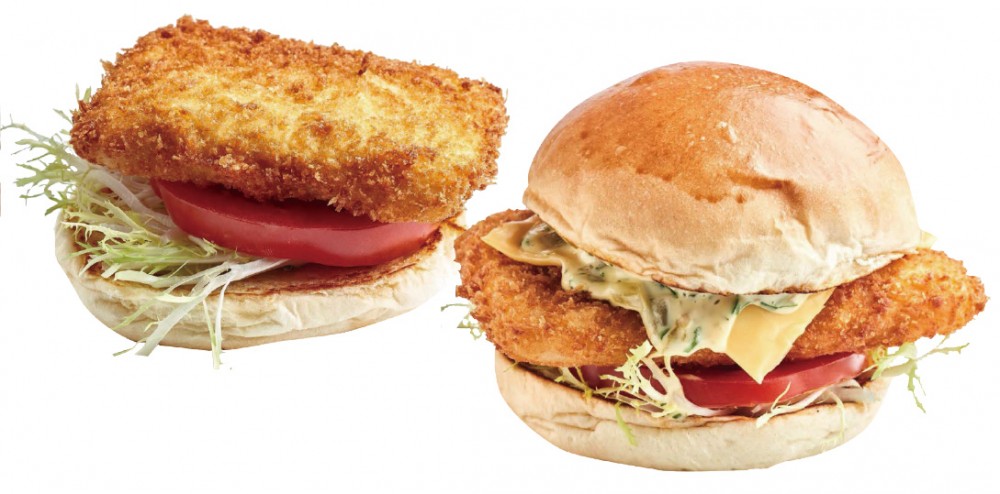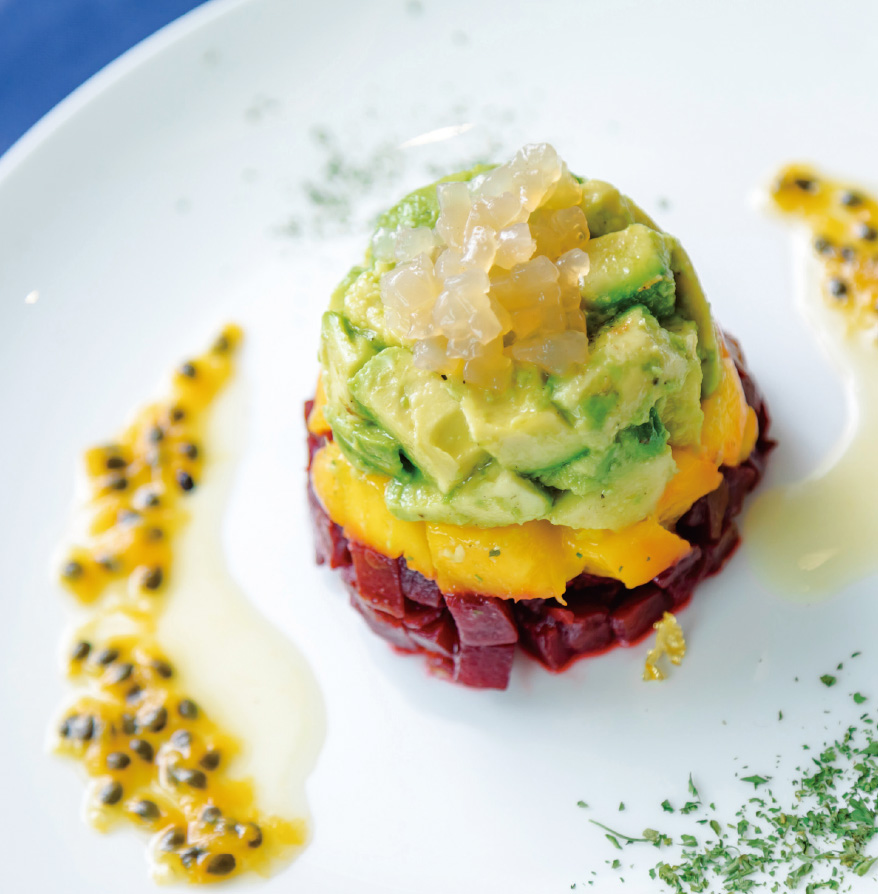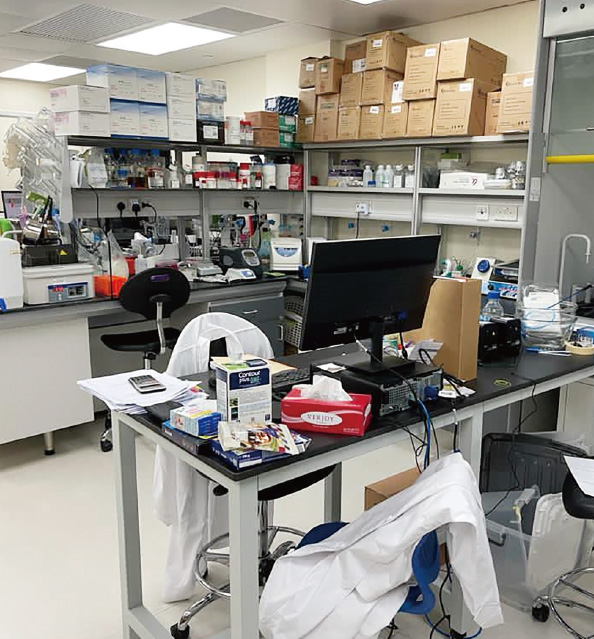As the public becomes increasingly health-conscious
and eco-minded in recent years, plant-based meat
has stirred up a new culinary trend. That said, the
global demand for meat has not stopped growing.
Local start-up Avant Meats focuses on developing
cultivated meat, using the regenerated cells of fish
to cultivate fish maws and fish fillets that do not only
taste exactly like ordinary fish but just as nutritious
too.


Plant-based meat, which has been quite popular of late, is mainly manufactured in two ways. The first type of is processed from soya beans and other plants before seasonings are added. The second type rides on the foundation of plant-based meat, and protein is added by recombinant fermentation to make the products more “meat-like”. Avant Meats is the only Hong Kong start-up that specializes in cultivated meat. The company’s cofounders Carrie Chan and Mario Chin applied the cell-based meat cultivation technology to develop artificial fish. Regenerative animal cells are extracted and used for meat cultivation. Although the product is not vegetarian, it is as ecofriendly and healthy as plant-based meat.
Flavor and texture of cultivated fish maw compares to their original version
 Fish maw is the first cultivated product
of Avant Meats. Chan explained, “We
are oriented towards the Asian market.
Therefore, we have chosen products that
resonate with Asians. There are many
possibilities for cultivated meats, but the
technology involves high production costs,
meaning the product also comes with a
relatively expensive price point. Therefore,
it makes more sense for consumers
to consider trying cultivated fish maw,
because natural ones are quite pricey.” In
terms of technology, since fish maw has
a singular structure, the cultivated version
would resemble the conventional one more
closely. As the cells used for cultivation
come from fish maw, the cultivated product
is just as nutritional as its conventional
counterpart. Riding on the technology of
tissue engineering, cultivated cells would
grow to a certain state and a support
frame could be added to simulate the in
vivo growing environment. The mouthfeel
of cultivated meat, as a result, becomes
more controllable, and can also be tuned to
resemble conventional fish maw.
Fish maw is the first cultivated product
of Avant Meats. Chan explained, “We
are oriented towards the Asian market.
Therefore, we have chosen products that
resonate with Asians. There are many
possibilities for cultivated meats, but the
technology involves high production costs,
meaning the product also comes with a
relatively expensive price point. Therefore,
it makes more sense for consumers
to consider trying cultivated fish maw,
because natural ones are quite pricey.” In
terms of technology, since fish maw has
a singular structure, the cultivated version
would resemble the conventional one more
closely. As the cells used for cultivation
come from fish maw, the cultivated product
is just as nutritional as its conventional
counterpart. Riding on the technology of
tissue engineering, cultivated cells would
grow to a certain state and a support
frame could be added to simulate the in
vivo growing environment. The mouthfeel
of cultivated meat, as a result, becomes
more controllable, and can also be tuned to
resemble conventional fish maw.

Quoting the 2019 forecast of A.T. Kearney (How W ill Cultured Meat and Meat Alternatives Disrupt the Agricultural and Food Industry?), Chan explained that the increase in population and the growth of developing countries will drive the demand for meat. As the technology for cultivated meat advances, the meat market of 2040 will be shared by cultivated meat (35%), plant-based meat (25%) and farmed meat (40%). There is indeed immense commercial potential for cultivated meats.
At the same time, the public is more aware of their environmental impact and personal health. Chan emphasized that since cultivated meat does not generate the environment pollution associated with traditional livestock production and fishery, it helps in reducing carbon emission. “Expansive farmland, large quantities of water and food are required for traditional livestock farming methods, resulting in lots of greenhouse gas emission. Over the course of raising farm animals, not all energy could be transformed into animal muscles. In fact, the efficiency of energy transfer is rather low. As cultivated meat is created in the laboratory, energy can be directly transferred to the cells, and the long span of breeding is no longer needed.” She added that as Avant Meats cultivates fish in the laboratory, radiation, micro-plastic, heavy metal and similar food safety problems caused by pollution can be avoided. The company also hopes that cultivated meat could mitigate resource exhaustion from over-fishing and prevent further damages to the marine ecology.


Plans for overseas sale in the pipeline in the face of financing challenges
 As a start-up founder, Chan considered
Hong Kong a great nurturing base. For
example, the Science Park has provided
space for Avant Meats’ laboratory. “We are
now developing prototypes in Hong Kong.
Our next step is mass production, but we
are facing some challenges as this kind of
manufacturing industry does not exist in
Hong Kong.”
As a start-up founder, Chan considered
Hong Kong a great nurturing base. For
example, the Science Park has provided
space for Avant Meats’ laboratory. “We are
now developing prototypes in Hong Kong.
Our next step is mass production, but we
are facing some challenges as this kind of
manufacturing industry does not exist in
Hong Kong.”
Start-ups do not on need a sound foundation, but also adequate funds to maintain operation. While Avant Meats had applied government funding support, Chan noted that approval takes way too long for time-crunch technology companies, and such funding assistance is not timely enough. She and Chin have to look for new funding sources to support expensive development costs. They reckoned local investors are not too familiar with this technology, and are often more conservative than European and US investors.
On top of research and development costs, cultivated meat products that go on the shelves in Hong Kong are faced with legal and regulatory issues. Chan said that Singapore has first approved of the selling of cultivated meat that contains animal cells in December 2020. Avant Meats has planned to launch its pilot products in 2021, and expects to begin production in 2022. The company would first consider rolling out their products in markets that have already approved of the selling of cultivated meats, such as Singapore. “We will be negotiating with manufacturers because they already have mature distribution networks and brands. Avant Meats will provide them with raw materials for processing, or we may develop new products according to their requirements.” She believed that if the products can be put on sale in foreign countries, it would be easier to reimport them to the Hong Kong or mainland China markets.




